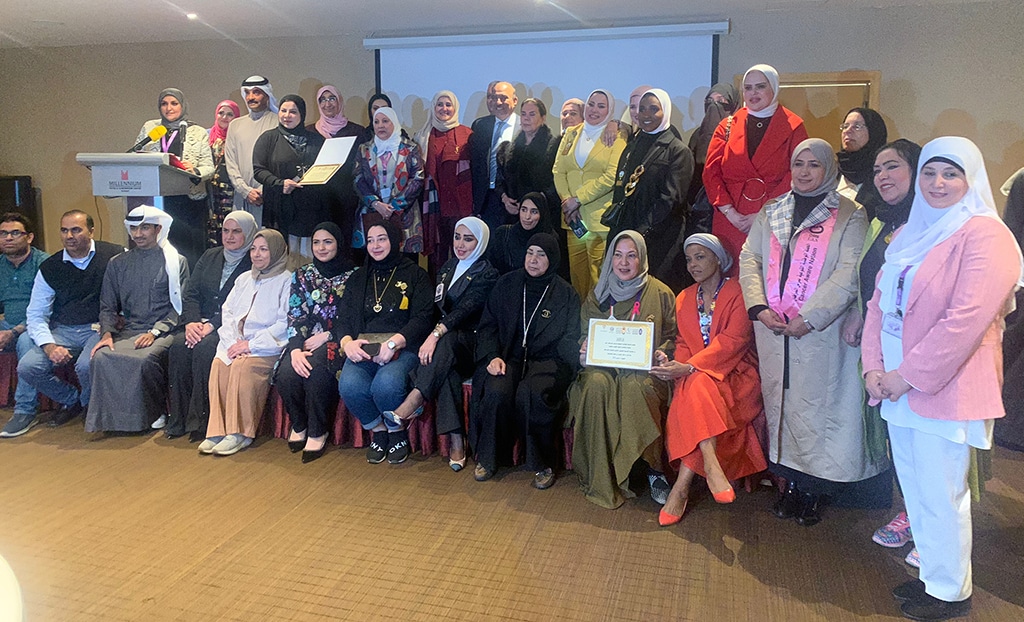By Abdellatif Sharaa
KUWAIT: Cancer Aware Nation (CAN) held a workshop for service providers and cancer patients with support from Kuwait Foundation for the Advancement of Sciences (KFAS). Chairman of CAN, Oncologist Dr Khalid Al-Saleh, gave a lecture on burnout experienced by service providers and the exhaustion health professionals are exposed to due to time constraints and lack of control over organization of work, in addition to the lack of smoothness in organizational work and weak leadership. Other reasons for exhaustion include work getting out of control, exhaustive work environment, working a long time without leave and little sleep or relaxation, adding that being emotionally close to a patient also causes exhaustion.
Dr Saleh divided exhaustion into joint, personal and work environment levels. He said a survey was conducted on exhaustion levels in dealing with the patients, which revealed 5.26 percent of medics enjoy work, 60.53 percent feel they are under pressure and that they use all their energy and 26.95 percent experience physical and emotional exhaustion.
Dr Saleh said exhaustion rates due to dealing with patients is 10-70 percent among nurses and 30-50 percent among doctors and their assistants who provide weak service compared to their colleagues who have rest periods and work in comfortable environments. He said countries that do not pay attention to exhaustion factors create a strained relation between healthcare providers and patients.
Oncologist at Kuwait Cancer Control Center Iman Rashid Al-Tawheed spoke about the places that treat cancer in the country - KCCC and NBK Children's Hospital, along with the stem cells treatment unit. She spoke about the best means to protect against cancer, saying awareness is part of a doctor's job that they are happy to do to reduce the burdens of exhaustion.
She said among the important awareness messages is to avoid breathing polluted air, practice sports daily and avoid alcohol and smoking of all types, in addition to eating healthy food. As for women, she said, breastfeeding their children can help them avoid getting cancer. Dr Tawheed said positive communication between doctors and patients is necessary and gives more comfort to patients and doctors.
Psychologist Nadia Saad Al-Obaidi said the psychological symptoms that a cancer patient goes through are different according to the affected organs in the body and the patient's personality and condition.
Dr Obaidi said psychological support must be a joint effort between the doctor, psychologist, nurses, family and friends, and the most important element in psychological support comes from the doctor who suffers from exhaustion and cannot provide this basic service to patients. Assistant head nurse Haneen Al-Rashidi spoke about the important role of nursing in treating cancer patients.
She said it is important for nurses to be aware of the treatment plan so that they can provide the best nursing care. Chairperson of the coordination committee of the 8th Gulf Week for Cancer Awareness Dr Hussa Majid Al-Shaheen thanked those who made the workshop possible and appreciated KFAS's role in spreading awareness.











